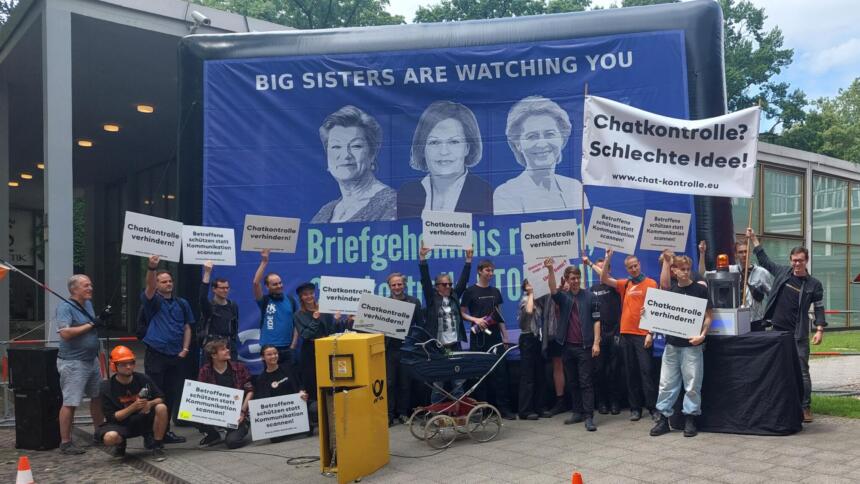
Gemeinsame Erklärung von NGOs an die EU-Staaten: Dem Vorschlag zur Massenüberwachung nicht zustimmen
Die EU-Staaten bereiten sich gerade darauf vor, sich auf eine Position zum Entwurf der EU-Verordnung über den sexuellen Kindesmissbrauch (CSA) zu einigen, der gemeinhin unter dem Begriff „Chat-Kontrolle“ bekannt ist. Dieser Gesetzesvorschlag ist beispiellos: Er könnte Unternehmen dazu zwingen, die private digitale Kommunikation aller Menschen in der EU im Auftrag von Regierungen ständig zu überprüfen. Die Humanistische Union hat mit anderen Nichtregierungsorganisationen ein gemeinsames englischsprachiges Statement unterzeichnet.
Statement to EU countries: Do not agree to mass surveillance proposal, warn NGOs
EU countries are preparing to agree their position on the draft EU Child Sexual Abuse (CSA) Regulation, commonly known as “chat control”. This proposed law is unprecedented: it could force companies to scan everyone’s private digital communications, on behalf of governments, all of the time.
Legal experts advising EU governments have warned that in its current form, the CSA Regulation would likely violate the rights of hundreds of millions of people in Europe, without any suspicion that they have done something wrong. It could also force everyone to undergo ID checks in order to access the internet, threatening digital exclusion for those without the ‘right’ documents.
Regardless of the broad concerns raised about the CSA Regulation, EU governments have so far failed to make essential changes to protect human rights, including privacy, free expression and the presumption of innocence. Nevertheless, they propose to exclude their own government communications from the rules, in a shocking admission that otherwise, the law would violate their right to confidentiality of communications.
Hundreds of academics, including those from 19 EU countries, have warned that the proposal is technically dangerous and poses a serious threat to encryption. This could put the 2 billion people worldwide who rely on encryption to keep their digital lives safe and secure at risk – including the very children this law aims to protect.
At least eight EU countries have reportedly attempted to address some of the major problems with the proposal. Parliamentarians in the Czech Republic, Ireland, the Netherlands, Austria and France have also spoken up for their constituents against the mass intrusion of our digital private lives.
Despite this, EU Home Affairs Ministers seem set to adopt a joint position on the CSA Regulation which would be illegal under EU human rights law.
As over 80 groups dedicated to upholding democracy and to protecting digital rights, the open use of the internet, human rights defenders, women and children’s rights and more, we call on all EU governments to say no to the CSA Regulation until it fully protects rights, freedoms and security online.
Signed,
Humanistische Union e. V.



